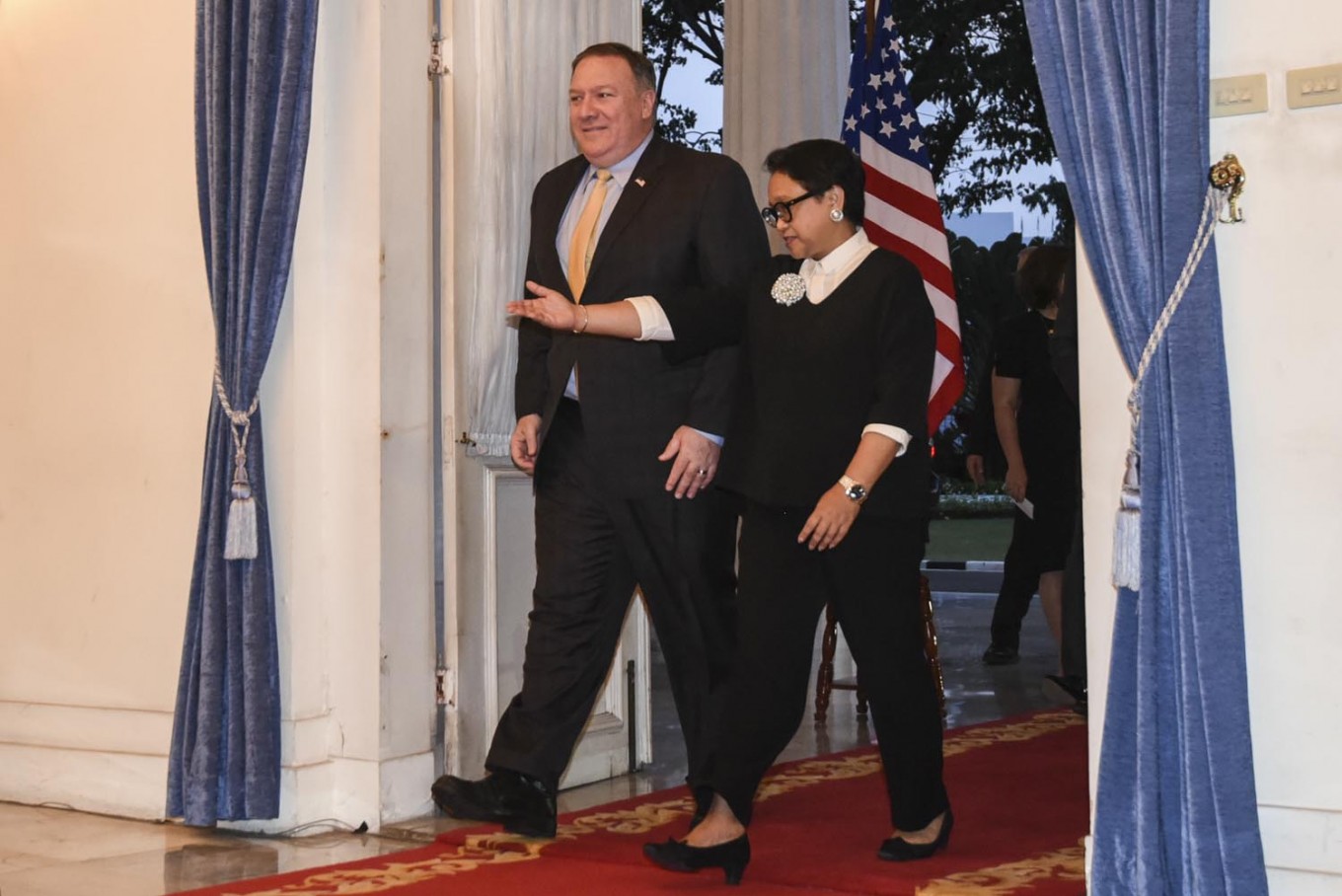Media Coverage from The Jakarta Post – 1 August, 2020
Indonesia must continue to closely engage the United States regardless of who wins the US presidential elections in November, diplomats and foreign policy experts say, as it seeks to rekindle its partnership with a superpower largely preoccupied with its rivalry with China.
With the race to the White House picking up speed, Indonesia must decide on how to best anticipate two possible scenarios: preparing for a change in US leadership or bracing for more of the same.
Americans are expected to head to the polls on Nov. 3 to vote in President Donald Trump for a second term or to let former vice president Joe Biden steer the US into a different direction.
Either way, experts agreed during a virtual discussion this week that the result of the election would affect Indonesia’s foreign policy stance vis-a-vis the US, as well as Washington’s relations in the Asia-Pacific in general.
On the one hand, former Indonesian ambassador to the US Dino Patti Djalal was especially confident that Trump would lose on account of unanticipated job losses and other challenges wrought by the COVID-19 pandemic.
“Throughout history, US voters are known for being punitive toward leaders who govern when the state is in distress,” he said on Tuesday.
Indonesia must start figuring out a partnership strategy beyond trade and investment to anticipate inevitable changes post-election, especially if candidate Biden outvotes Trump, said the founder of the Foreign Policy Community of Indonesia (FPCI).
“If elected, Biden will be the most ‘foreign policy prepared’ president. But how bold and different his foreign policy will be depends on whether the Democrats could rule the Senate,” Dino said of the former member of the US Senate foreign affairs committee.
The Foreign Ministry’s director for America (I) affairs, Zelda Kartika, said that if Biden was elected, more nonconventional security issues could be raised in discussions, such as human rights, democracy, immigration, environment and labor issues, in contrast to a Trumpian foreign policy that focuses more on trade and investment and sanctioning.
Meanwhile, chief country representative of the US-ASEAN Business Council in Jakarta, Landry Haryo Subianto, said Indonesia must anticipate shared concerns with the US in the coming years, including on issues such as climate change, health, technology and trade and investment.
Landry added that the US-China trade war under a Biden presidency would likely be more sophisticated and with less censuring toward China.
Weary of its hefty trade deficit with Beijing, Washington declared a trade war in March 2018. It quickly escalated with tit-for-tat punitive duties on hundreds of billions of dollars of bilateral trade, disrupting global trade.
Trump’s fixation on the trade war has other countries scrambling to benefit from the fallout from two superpowers, and Indonesia is no exception.
The government has formed a special task force to attract companies leaving China. In June, seven foreign businesses, including US-based light product maker Alpan, confirmed their relocation plans to Indonesia.
Indonesia must take the opportunity to persuade as many US companies seeking to move out of China and relocate their production facilities to Southeast Asian countries, said Siswo Pramono, the Foreign Ministry’s head of policy analysis and development.
He said the trade war would continue regardless of who would be elected the new US president later this year.
“Biden wants to boost domestic manufacturing while taking a hard line on China’s alleged steel dumping and intellectual property infringement. Meanwhile, Trump will continue to attack China, encourage US companies to avoid offshoring and slap tariffs on Chinese goods,” he said.
Even though Trump has arguably dragged US leadership down by retreating from global forums, introducing policies deemed unfavorable to many nations including US allies and dismantling former president Barack Obama’s achievements, foreign views of the US remains generally favorable, according to a Pew Research poll in January.
“Despite low confidence in Trump, there are still high expectations for US global leadership among the international community, including from Asia-Pacific,” said Syafiah Muhibat, head researcher on international relations at the Centre for Strategic and International Studies (CSIS).
Also, many US voters still feel represented by Trump despite the lack of trust in him globally, said international law expert Hikmahanto Juwana of the University of Indonesia.
As such, he said, Indonesia should prepare for both scenarios.
“If Trump wins again, forget that bilateral trade will run smoothly before Trump manages to bring back US jobs. Besides, we must also think about how to reduce tension in [Southeast Asia] because under Trump, the escalated trade war might turn the region into a battleground,” he said.
Syafiah of CSIS said the most important yet still unanswered question was what changes could either US presidential candidate offer to ASEAN.
“Trump is known for his ‘tit for tat’ or transactional policy, which often undermines multilateral interests. The undecided policy toward ASEAN leaves a challenge to Indonesia, that is how to contribute in regions to uphold multilateral partnership,” said Shafiah.
US ties with Indonesia and ASEAN has been lacking in recent years, with Washington focusing most of its resources on its rivalry with Beijing. The US ambassadorships to Indonesia and to ASEAN are currently vacant, with ad interim officials without much sway in policymaking left in charge of relations.





